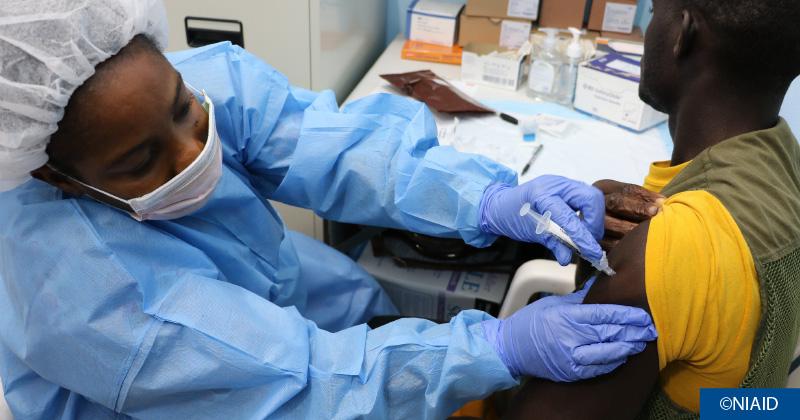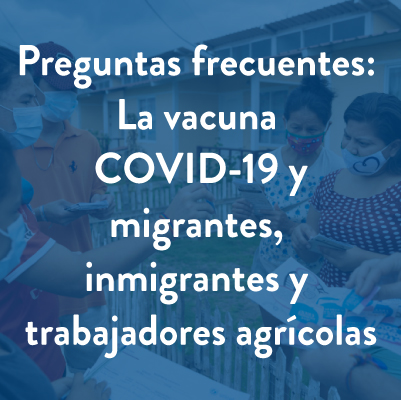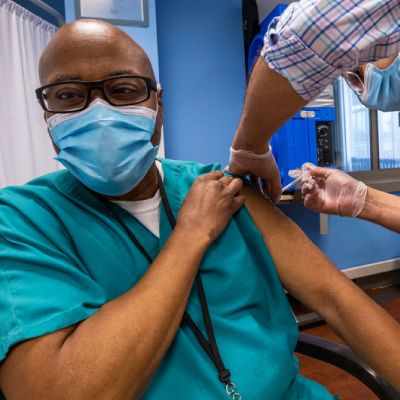- Who We Are
- Clinician Employment
- Publications
- Witness to Witness (W2W)
- El Premio Kugel & Zuroweste a la Justicia en la Salud
- Your Voice Matters: Photovoice Project
Tue, 01/12/2021 | by MCN Admin


Last week, Nebraska Governor Pete Ricketts stated that workers who lack authorization to live or work in the US would not be eligible for a COVID-19 vaccine in his state, later clarifying that the state will prioritize citizens and legal residents, leaving frontline meatpacking workers who lack authorization to work at the end of the line for vaccination, despite their “essential” status. Meatpacking and other essential food workers in Nebraska were ordered by the Trump Administration to continue working through the pandemic, during outbreaks and despite deaths within their industry, and without any local, state, or federal COVID-19 safety regulations. They have put their lives at risk to maintain the stability of our food processing and distribution systems -- and many lack work authorization. As essential workers, they are categorized as 1B – meaning they are prioritized to receive a COVID-19 vaccine as essential workers, after 1A-category frontline health care workers and the residents and staff of long-term care facilities, in recognition of the high workplace risk of COVID-19 and their critical contributions to the underpinnings of our food systems. Governor Ricketts’ statement ignores these workers’ hazardous work conditions, the nation’s heavy reliance on their work to provide everyday food items, and our responsibility as a nation to provide basic public health to all.
“Everyone deserves the opportunity to be vaccinated,” against COVID-19, asserted Deliana Garcia, Director of International Projects and Emerging Issues at Migrant Clinicians Network and a vaccine expert. “Regardless of immigration status, race, ethnicity, gender – no barriers should be erected to purposefully exclude people from accessing this basic and important public health intervention.”
Amy K. Liebman, Director of Environmental and Occupational Health for MCN, agrees. “Our essential workers in particular have spent an entire year at higher risk of death as a result of their occupational exposures to COVID-19,” she emphasized. “This pandemic reminds us each and every day that worker health and safety is public health. Singling out a core group of workers on the frontlines of our food supply is not only cruel and unethical but it is a policy that harms our entire community.”
At the time of writing, at least 80,671 food workers have tested positive for COVID-19 and at least 354 workers have died.
Further Reading:
Position Statement: Community Health Workers, Outreach & Education Must Be Front & Center to Support Immigrants & Migrants When COVID-19 Vaccination Arrives, Migrant Clinicians Network
The US Must Prioritize Vaccine Distribution To Undocumented Immigrants And Immigrants In Detention Centers, Health Affairs
Nebraska Governor Wrong on Immigrant Vaccinations, The Hill
Position Statement: Community Health Workers, Outreach & Education Must Be Front & Center to Support Immigrants & Migrants When COVID-19 Vaccination Arrives, Migrant Clinicians Network
The US Must Prioritize Vaccine Distribution To Undocumented Immigrants And Immigrants In Detention Centers, Health Affairs
Nebraska Governor Wrong on Immigrant Vaccinations, The Hill
Like what you see? Amplify our collective voice with a contribution.
Got some good news to share? Contact us on our social media pages above.
Return to the main blog page or sign up for blog updates here.







